Introduction
Embarking on the academic job market is a significant step in your professional journey. The process is multifaceted, and understanding each component is crucial for success. This guide provides an exhaustive look at the academic hiring process, with a focus on the campus visit—the most critical phase that can determine whether you secure the position. Drawing from extensive experience on both sides of the hiring process, this guide incorporates every essential point to ensure you are thoroughly prepared.
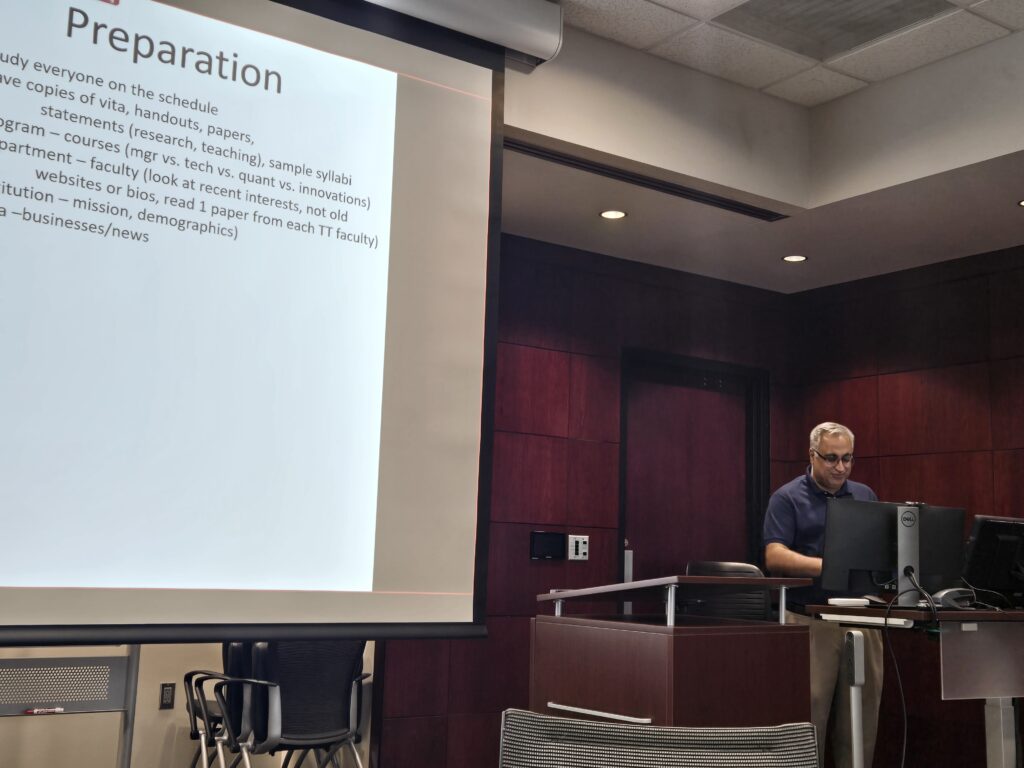
Understanding the Academic Hiring Process
1. Application Submission
Job Advertisements
- Platforms: Academic positions are advertised on various platforms, including AISWorld, the Association for Information Systems (AIS) website, The Chronicle of Higher Education, MIS Quarterly (MISQ), INFORMS, and sometimes specific academic forums.
- Action Steps:
- Regularly check these platforms for new postings.
- Set up job alerts for positions that match your expertise.
- Research each institution to tailor your application effectively.
Application Package
- Components:
- Cover Letter: A personalized letter highlighting why you are a good fit for the position and the institution.
- Résumé/CV: Detailed academic and professional history, including publications, presentations, and relevant experiences.
- Teaching Statement: Your teaching philosophy, methodologies, experiences, and how you engage students.
- Research Statement: Overview of your research interests, past work, future plans, and how your research aligns with the department.
- Additional Materials: Any unique qualifications, such as sample syllabi, evidence of teaching effectiveness, or diversity statements.
- Action Steps:
- Customize your cover letter for each application, emphasizing alignment with the institution’s mission.
- Ensure all materials are up-to-date and free of errors.
- Highlight any idiosyncrasies or unique attributes that make you a standout candidate.
Submission Process
- Method: Applications are typically submitted through the institution’s online portal.
- Action Steps:
- Follow the submission instructions meticulously.
- Upload all required documents in the specified formats.
- Confirm receipt of your application.
2. Application Evaluation
Initial Screening
- Volume of Applications: Institutions may receive 70-80 applications for a single position.
- Criteria:
- Research Focus: Institutions heavily focused on research look for candidates who can contribute significantly to their research culture.
- Publication Record: A strong record in top journals (e.g., MISQ, JMIS, ISR) places candidates in a favorable position.
- Education and Training: The reputation of your Ph.D. program, your dissertation chair, and your training background are considered.
- Action Steps:
- Emphasize any publications or advanced revisions you have in top journals.
- Highlight your research potential and how it aligns with the department’s focus.
Sorting Applications
- Process:
- Primary Pile: Candidates with publications in top journals or advanced revisions.
- Secondary Pile: Candidates without significant publications but with potential based on other factors.
- Further Evaluation:
- The committee reviews the primary pile more closely, considering teaching interests, potential fit, and overall qualifications.
- Approximately 7-8 candidates are selected for preliminary interviews.
3. Preliminary Interviews
Format
- Medium: Traditionally conducted at conferences, but increasingly via Zoom or other video conferencing platforms.
- Duration: Typically 30 minutes.
Typical Questions
- Interest in the Institution:
- “Why are you interested in our institution?”
- “What attracts you to this position?”
- Research Plans:
- “Tell us more about your research and how you plan to advance it.”
- Teaching Interests:
- “What courses are you interested in teaching?”
- “How do your teaching interests align with our curriculum?”
- Commitment to the Institution:
- “If we made you an offer, how likely are you to accept?”
- “What factors are most important to you in choosing an institution?”
Outcome
- From these interviews, the committee narrows the pool to approximately three candidates for campus visits.
The Campus Visit
Setting Expectations
Inefficiencies in the Process
- Faculty Roles: Faculty members, who are not professional recruiters and are often overloaded, make hiring decisions.
- Communication: You may receive unclear or contradictory information from multiple sources.
- Action Steps:
- Be prepared for potential disorganization.
- Maintain flexibility and patience throughout the process.
Emotional Preparedness
- Ambiguity: The process can be anxiety-inducing due to its high ambiguity.
- Expectations: Understanding and expecting these inefficiencies can reduce stress.
- Action Steps:
- Focus on what you can control—your preparation and conduct.
- Practice stress-management techniques.
Typical Campus Visit Schedule
Travel Arrangements
- Booking Flights:
- The institution may ask you to book your tickets for reimbursement or handle the booking themselves.
- Receiving the Schedule:
- You may receive your interview schedule in advance via email or upon arrival.
- Action Steps:
- Keep all travel receipts if reimbursement is required.
- Review your schedule as soon as you receive it.
Pre-Visit Preparation
- Research Opportunities:
- An advanced schedule allows you to research the faculty and administrators you’ll meet.
- Action Steps:
- Investigate each person’s research interests, recent publications, and roles within the department.
- Prepare thoughtful questions and discussion points for each meeting.
Evening Before the Interview Day
- Dinner with Faculty:
- Typically with search committee members, but could be with any faculty available.
- Participants:
- May include the department chair, search committee members, or other faculty who volunteered.
- Action Steps:
- Use this informal setting to build rapport.
- Be professional yet personable.
Interview Day Components
1. One-on-One Meetings
- Format:
- 30-minute slots with individual faculty members.
- Could also be group sessions with assistant professors, associate professors, or Ph.D. students.
- Purpose:
- Assess mutual fit, discuss research interests, and explore potential collaborations.
- Action Steps:
- Prepare to discuss your research in varying levels of detail.
- Engage faculty by expressing genuine interest in their work.
2. Meetings with Administrators
- Participants:
- Department Chair, Dean, Associate Dean.
- Purpose:
- Understand departmental goals, expectations, and resources.
- Action Steps:
- Prepare questions about the department’s vision, support for research, and teaching expectations.
- Demonstrate how you can contribute to their goals.
3. Lunch
- Participants:
- Could be with faculty, Ph.D. students, or both.
- Action Steps:
- Continue professional engagement.
- Use this time to learn about the student body and departmental culture.
4. The Job Talk
- Timing:
- Usually scheduled earlier in the day.
- Audience:
- Faculty members, Ph.D. students, possibly other department members.
- Content:
- Presentation of your research, highlighting its significance, methodology, and contributions.
- Action Steps:
- Practice extensively.
- Tailor your presentation to the audience’s background.
5. Campus Tour
- Guide:
- Typically conducted by a student or faculty member.
- Purpose:
- Familiarize you with the campus facilities and environment.
- Action Steps:
- Show enthusiasm.
- Ask questions about campus life and resources.
6. Real Estate Tour (Optional)
- Purpose:
- Introduce you to the local housing market and community.
- Action Steps:
- Use this opportunity to assess the area’s suitability for your lifestyle.
- Ask about cost of living, neighborhoods, and amenities.
Post-Interview and Departure
- Debriefing:
- May include final meetings or paperwork.
- Travel Home:
- Departure could be the same day or the following day.
- Action Steps:
- Ensure you have all necessary information about next steps.
- Express gratitude for the opportunity.
What Committees Are Looking For
1. Alignment
Fit with the Department
- Research Relevance:
- Your research interests should complement and enhance the department’s focus areas.
- Teaching Interests:
- Ability and willingness to teach courses that meet the department’s needs.
Cultural Fit
- Institutional Values:
- Alignment with the institution’s mission and values.
- Enthusiasm:
- Genuine interest in the position and institution.
Communication Skills
- Effectiveness:
- Ability to articulate your ideas clearly.
- Engagement:
- Capacity to engage diverse audiences.
2. Competence
Subject Matter Expertise
- Depth of Knowledge:
- Strong understanding of your research area.
- Publications:
- A record of publications or strong potential for future research output.
Teaching Competence
- Experience:
- Prior teaching experience or demonstrated potential.
- Philosophy:
- Clear teaching philosophy and methodologies.
Professional Growth Potential
- Future Plans:
- Vision for your research trajectory.
- Adaptability:
- Willingness to grow and evolve in your field.
3. Collegiality
Interpersonal Skills
- Teamwork:
- Ability to collaborate with colleagues.
- Respectfulness:
- Treating everyone with equal respect, regardless of their position.
Professionalism
- Mannerisms:
- Professional demeanor in all interactions.
- Attire:
- Dressing appropriately for all events.
Personal Attributes
- Leadership:
- Potential to take on leadership roles.
- Engagement:
- Active participation in departmental activities.
Preparing for the Campus Visit
1. Research and Preparation
Investigate the Faculty
- Profiles:
- Read faculty profiles on the department’s website.
- Publications:
- Read at least one recent paper from each tenure-track faculty member you’ll meet.
- Collaborations:
- Note any collaborative projects within the department or with other institutions.
Understand the Department and Programs
- Curriculum:
- Familiarize yourself with the courses offered.
- Initiatives:
- Be aware of any new programs, certificates, or research centers.
- Culture:
- Understand the department’s culture, values, and priorities.
Research the Institution
- Mission and Vision:
- Align your goals with the institution’s mission.
- Recent Developments:
- Stay informed about recent news or events affecting the institution.
Local Context
- Community:
- Learn about the local area, including housing, cost of living, and amenities.
- News:
- Read local newspapers to understand community issues and events.
2. Preparing Your Materials
Documents to Bring
- CV and Cover Letter:
- Have copies readily available.
- Research and Teaching Statements:
- Bring copies in case someone requests them.
- Sample Syllabi:
- If applicable, have syllabi for courses you’re prepared to teach.
Presentation Preparation
- Backup Plans:
- Save your presentation on multiple media (USB drive, email, cloud storage).
- Technical Requirements:
- Confirm compatibility with the institution’s equipment.
- Handouts:
- Prepare any handouts if appropriate.
3. Practice Your Job Talk
Content Mastery
- Clarity:
- Ensure your research is presented clearly and logically.
- Relevance:
- Highlight how your work contributes to the field and the department.
Delivery
- Engagement:
- Use storytelling techniques to engage the audience.
- Timing:
- Practice to stay within the allotted time.
- Visual Aids:
- Use slides to enhance, not overshadow, your talk.
Anticipate Questions
- Common Inquiries:
- Prepare for standard questions about your research, methodology, and future plans.
- Difficult Questions:
- Think about potential challenges and how to address them.
4. Mental and Emotional Preparation
Mindset
- Confidence:
- Believe in your abilities and qualifications.
- Resilience:
- Be prepared for unexpected situations.
Self-Care
- Rest:
- Ensure you are well-rested before the visit.
- Health:
- Stay hydrated and maintain a healthy diet.
Stress Management
- Techniques:
- Practice deep breathing or mindfulness exercises.
- Preparation:
- Thorough preparation can reduce anxiety.
During the Campus Visit
1. Professional Etiquette
Dress Appropriately
- Attire:
- Wear professional clothing suitable for academic settings.
- Comfort:
- Ensure your clothing is comfortable for a long day.
Punctuality
- Timeliness:
- Arrive early for all meetings and events.
- Schedule Awareness:
- Keep track of your itinerary to avoid delays.
Respect Everyone Equally
- Interactions:
- Treat faculty, administrators, staff, and students with equal respect.
- Professionalism:
- Use appropriate titles unless instructed otherwise.
2. Meals and Social Events
Ordering Food and Drinks
- Alcohol:
- Dinner: If others order alcohol and it seems appropriate, you may choose to do so. If unsure, abstain.
- Lunch: Generally, avoid alcohol during lunch.
- Food Choices:
- Opt for manageable, bite-sized foods.
- Avoid messy dishes like pasta or loaded burgers.
- Price Considerations:
- Avoid ordering the most expensive items or those listed as “market price.”
Dining Etiquette
- Conversation:
- Engage in light, positive topics.
- Avoid controversial subjects like politics or religion.
- Eating Pace:
- Aim for a four-to-one ratio (others’ bites to your bites) since you’ll be speaking more.
- Ordering Dessert or Coffee:
- Only do so if others are partaking.
Special Considerations
- Dietary Restrictions:
- Politely inform your hosts in advance if possible.
- If presented with food you cannot eat (e.g., due to allergies), graciously decline and explain.
3. One-on-One Meetings
Do’s
- Discuss the Department:
- Culture, resources, teaching goals, and expectations.
- Show Enthusiasm:
- Express genuine interest in faculty research and the department’s initiatives.
- Ask Thoughtful Questions:
- Inquire about mentorship opportunities, collaborative projects, and departmental processes.
- Prepare Talking Points:
- Direct conversations to areas where you feel confident.
Don’ts
- Avoid Negative Topics:
- Do not criticize previous institutions or colleagues.
- Steer clear of local politics or controversial subjects.
- Salary and Benefits:
- Do not bring up compensation unless they initiate the discussion.
- Personal Deficiencies:
- Avoid highlighting your weaknesses unless directly asked.
Common Questions to Prepare For
- “Why do you want to come to our institution?”
- “What courses are you interested in teaching?”
- “What are your strengths and weaknesses?”
- “What resources do you need for your research?”
- Action Steps:
- Prepare concise and positive responses.
- Have 1-, 3-, and 10-minute versions of your research ready.
Engagement Strategies
- Active Listening:
- Show attentiveness and interest.
- Conversation Starters:
- Use observations from their office (e.g., awards, photos) to spark discussions.
- Humility:
- Be confident but not arrogant.
4. The Job Talk
Technical Preparation
- Equipment Check:
- Arrive early to set up and test all equipment.
- Backup Plans:
- Have your presentation saved in multiple places.
- Phone Etiquette:
- Turn off your phone completely, including vibrations.
Content Delivery
- Strong Opening:
- Start with an engaging anecdote or relevant example.
- Structure:
- Clearly outline the presentation roadmap.
- Clarity:
- Simplify complex concepts for a diverse audience.
- Visual Aids:
- Use uncluttered slides that support your narrative.
Interaction
- Managing Questions:
- Encourage clarification questions during the talk but reserve in-depth questions for the end.
- Audience Engagement:
- Make eye contact and observe audience reactions.
- Handling Interruptions:
- Stay composed if interrupted and address questions professionally.
Closing
- Summary:
- Recap the key points and contributions of your research.
- Future Directions:
- Outline your research roadmap and how you plan to build on your work.
- Impact Statement:
- Convey how your research changes or contributes to the field.
5. Handling Questions and Challenges
Q&A Session
- Active Listening:
- Pay close attention to each question.
- Thoughtful Responses:
- Provide clear and concise answers.
- Admitting Uncertainty:
- If unsure, it’s acceptable to say, “That’s an interesting question; I’d like to think about it further.”
Dealing with Difficult Questions
- Stay Composed:
- Maintain a calm demeanor.
- Avoid Defensiveness:
- Thank the questioner and provide a reasoned response.
- Bridging Techniques:
- Redirect to areas of strength if appropriate.
Handling Provocations
- Example Scenario:
- Some institutions may intentionally challenge you to see how you handle pressure.
- Action Steps:
- Remain professional.
- Demonstrate critical thinking and problem-solving skills.
Post-Visit Considerations
1. Thank-You Notes
Who to Thank
- Individual Meetings:
- Send personalized emails to those you met one-on-one.
- Group Interactions:
- A general thank-you may suffice for group sessions.
Content of the Notes
- Express Gratitude:
- Thank them for their time and insights.
- Reiterate Interest:
- Reaffirm your enthusiasm for the position and institution.
- Follow-Up:
- Address any pending items or questions discussed.
2. Reflection and Follow-Up
Self-Assessment
- Evaluate Performance:
- Consider what went well and areas for improvement.
- Assess Fit:
- Reflect on whether the institution aligns with your career goals.
Additional Information
- Provide Requested Materials:
- If asked for further documents or information, send them promptly.
- Stay Engaged:
- Keep communication lines open.
3. Patience and Communication
Understanding Timelines
- Decision-Making Process:
- Hiring decisions can take time due to internal procedures.
- Other Candidates:
- You may not be the first offer; be patient.
Managing Other Offers
- Transparency:
- If you receive another offer, inform the institution respectfully.
- Negotiations:
- Handle any negotiations professionally.
4. Handling Outcomes
If You Receive an Offer
- Consider All Factors:
- Evaluate the offer holistically, including location, resources, and fit.
- Negotiate if Necessary:
- Discuss terms respectfully if adjustments are needed.
If You Don’t Receive an Offer
- Maintain Professionalism:
- Thank the institution for the opportunity.
- View as Experience:
- Use the experience to enhance future applications.
- Stay Positive:
- Remember that not receiving an offer isn’t a personal failure.
General Advice and Common Scenarios
1. Ordering Alcohol During Meals
- Dinner:
- Action: Take cues from your hosts. If they order alcohol and it’s appropriate, you may choose to do so.
- Lunch:
- Action: Avoid ordering alcohol during lunch meetings.
2. Handling Dietary Restrictions
- Scenario:
- You’re served food you’re allergic to, such as pancakes with nuts at the department chair’s home.
- Action Steps:
- Politely explain your allergy.
- Express appreciation for their hospitality.
- Offer to enjoy other aspects of the meal if possible.
3. Discussing Publication Plans When You Have None
- Scenario:
- Asked about your publication plans but haven’t submitted any papers yet.
- Action Steps:
- Focus on your current research projects nearing completion.
- Highlight intentions to submit to high-impact journals soon.
- Emphasize the significance and potential of your work.
4. Taking Notes During Meetings
- Action Steps:
- Ask if they mind you taking notes.
- Ensure note-taking doesn’t disrupt the conversation.
- Use breaks to jot down important points if needed.
5. Handling Questions During Your Presentation
- Should You Ask the Audience to Hold Questions?
- Action: Politely set expectations at the beginning. For example, “I welcome clarification questions during the presentation, and we’ll have time for in-depth questions at the end.”
6. Dealing with Difficult Questions or Criticism
- Action Steps:
- Stay calm and composed.
- Acknowledge the question’s validity.
- Provide a thoughtful response or offer to follow up later.
7. Treating Everyone with Respect
- Importance:
- Negative interactions with anyone can severely impact your candidacy.
- Action Steps:
- Be courteous to administrative staff, students, and faculty alike.
- Remember that everyone you meet could influence the hiring decision.
Conclusion
Key Takeaways
- Preparation is Crucial:
- Thoroughly research the institution and individuals.
- Practice your job talk and responses to common questions.
- Professionalism Matters:
- Dress appropriately and be punctual.
- Treat everyone with equal respect.
- Communication Skills:
- Engage in meaningful conversations.
- Be clear and concise in your presentations and discussions.
- Self-Awareness:
- Be mindful of the signals you send through your actions and words.
- Manage stress effectively and stay composed.
Final Thoughts
The academic hiring process is a journey that requires diligence, patience, and self-reflection. The campus visit is not only an opportunity for the institution to evaluate you but also for you to assess whether the institution aligns with your professional goals and values. Regardless of the outcome, each experience enhances your growth and prepares you for future opportunities.
Remember:
- Stay Positive: Approach each interaction with enthusiasm.
- Be Yourself: Authenticity fosters genuine connections.
- Learn and Adapt: Use each experience as a learning opportunity.
Good Luck!
Embrace the process with confidence and thorough preparation. Your dedication and professionalism will shine through, increasing your chances of success in the academic job market.
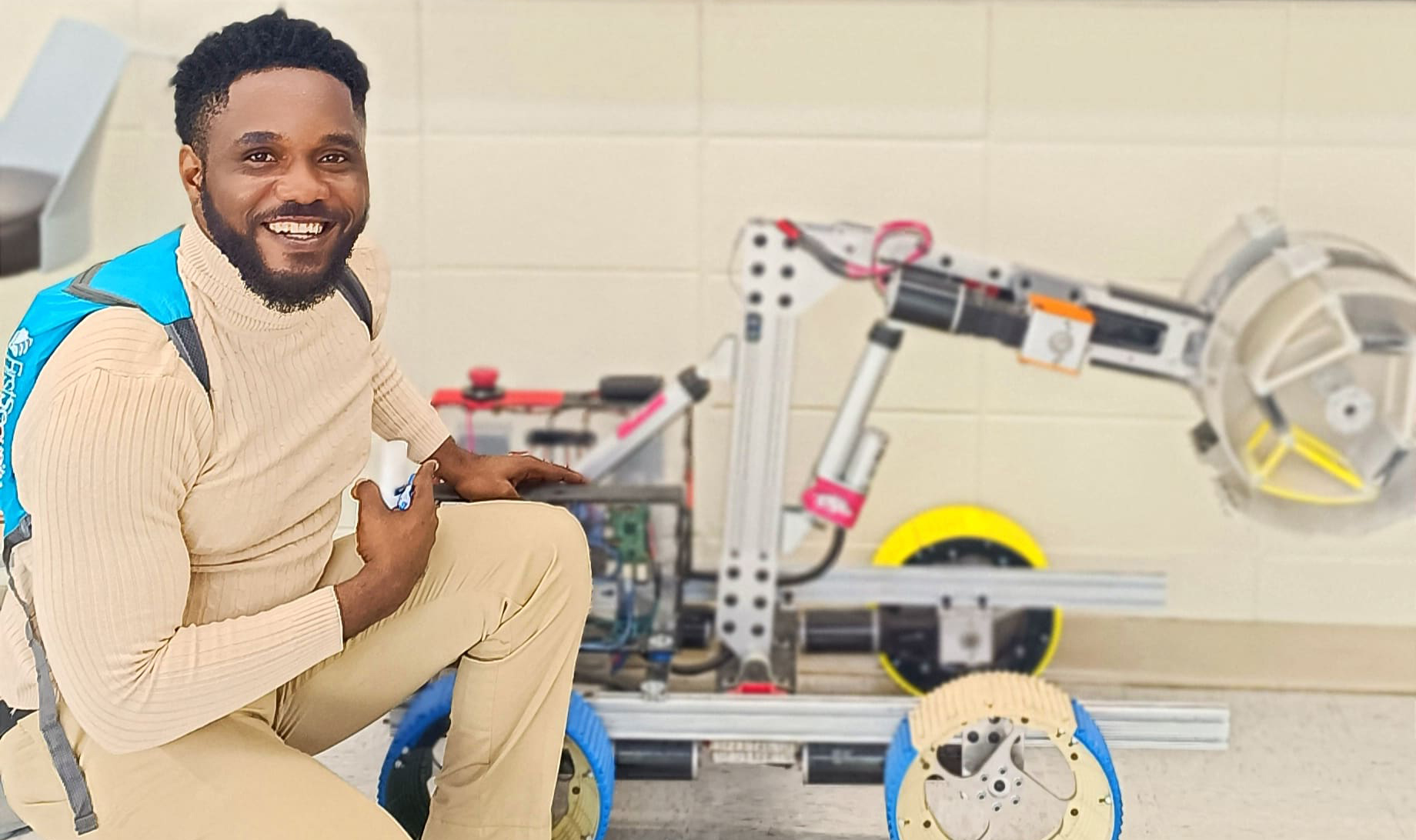

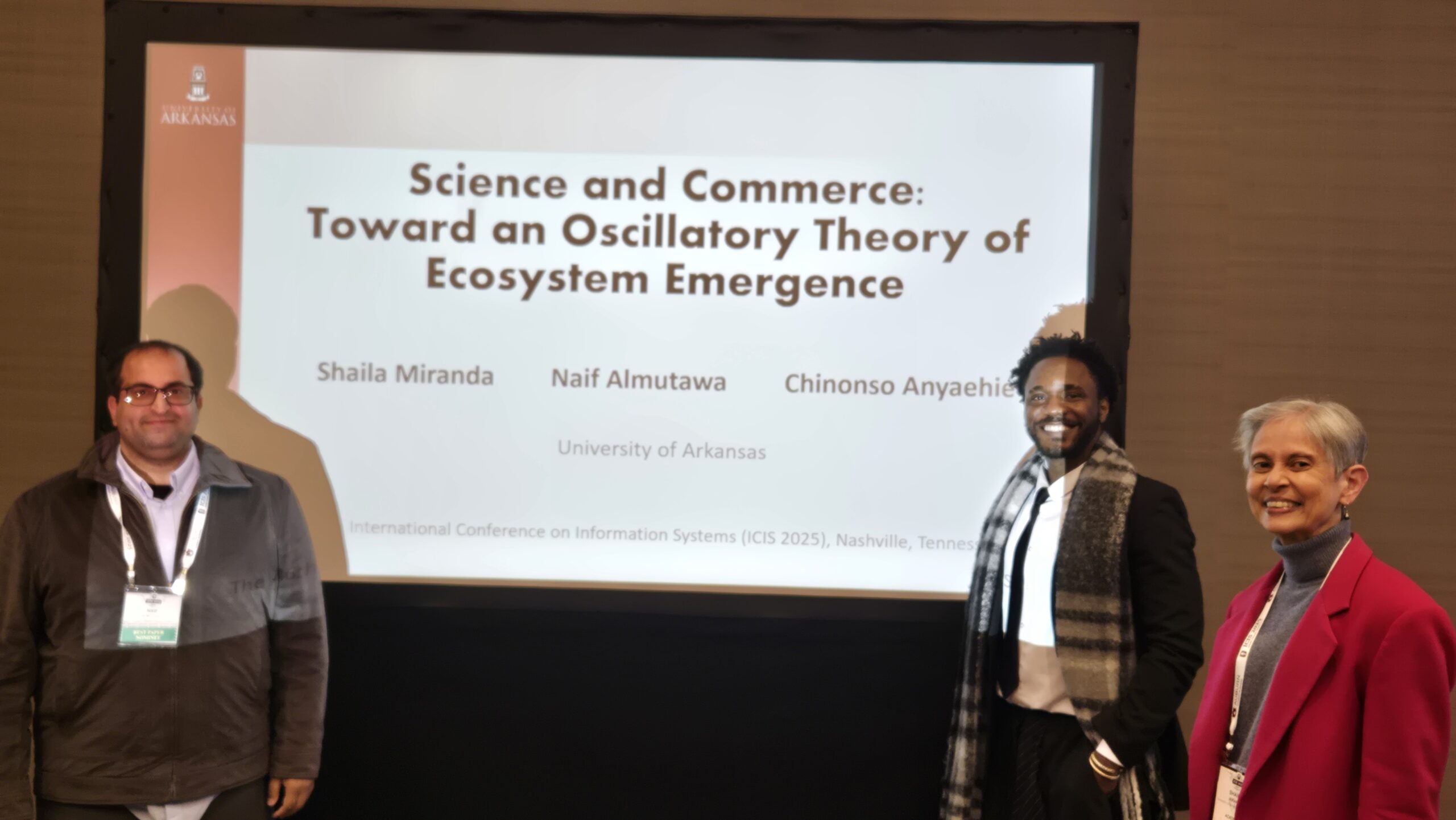
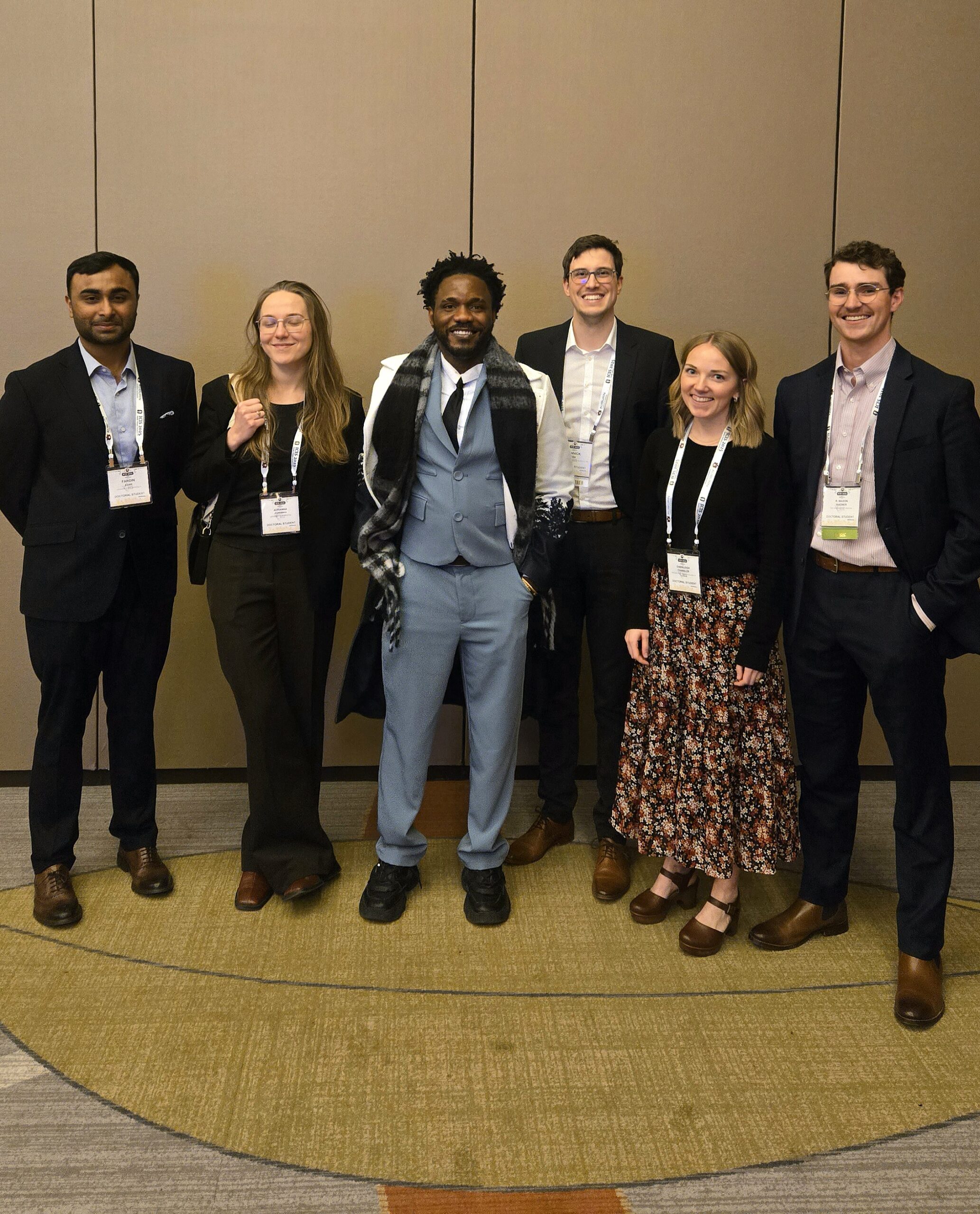
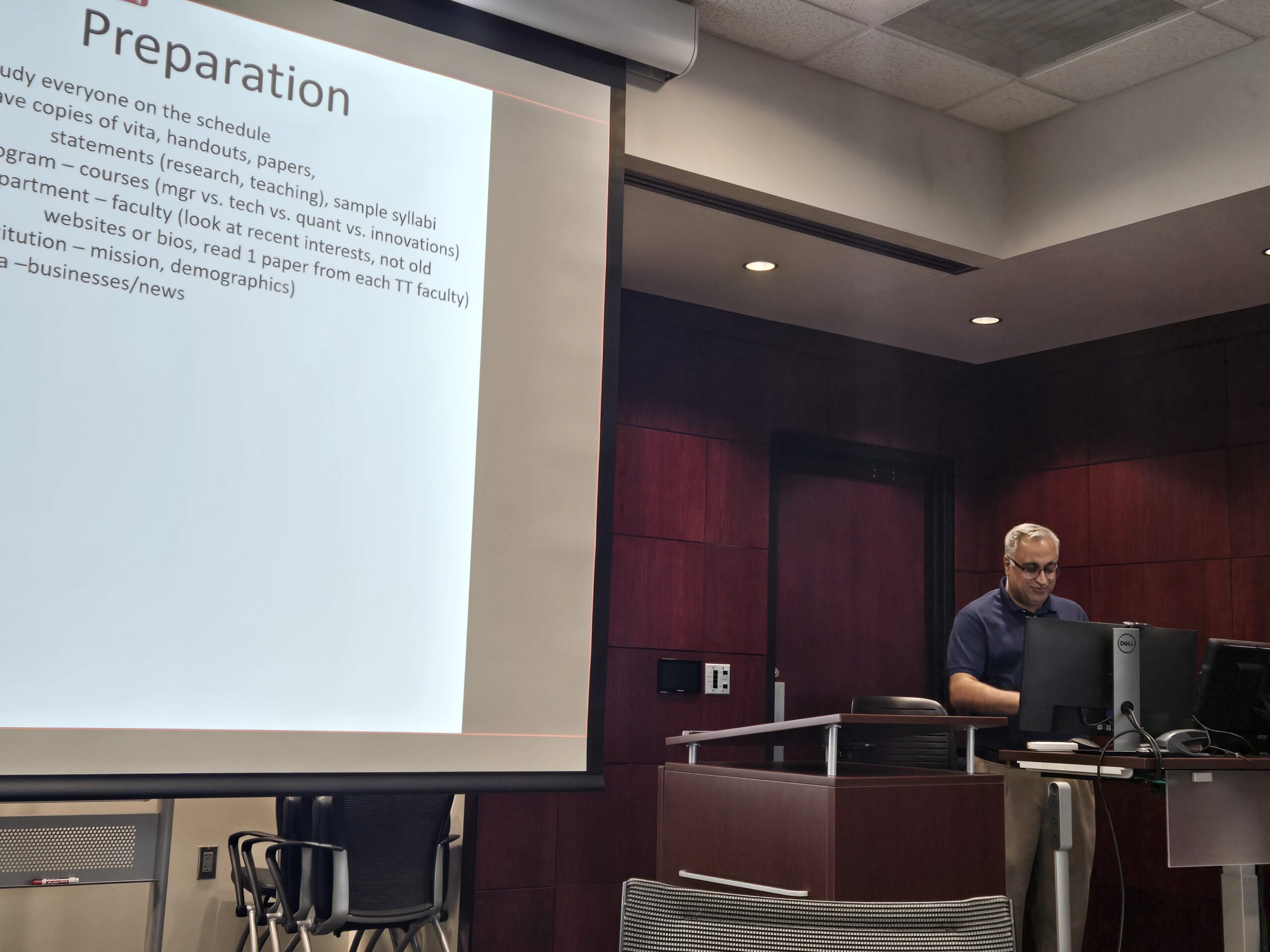

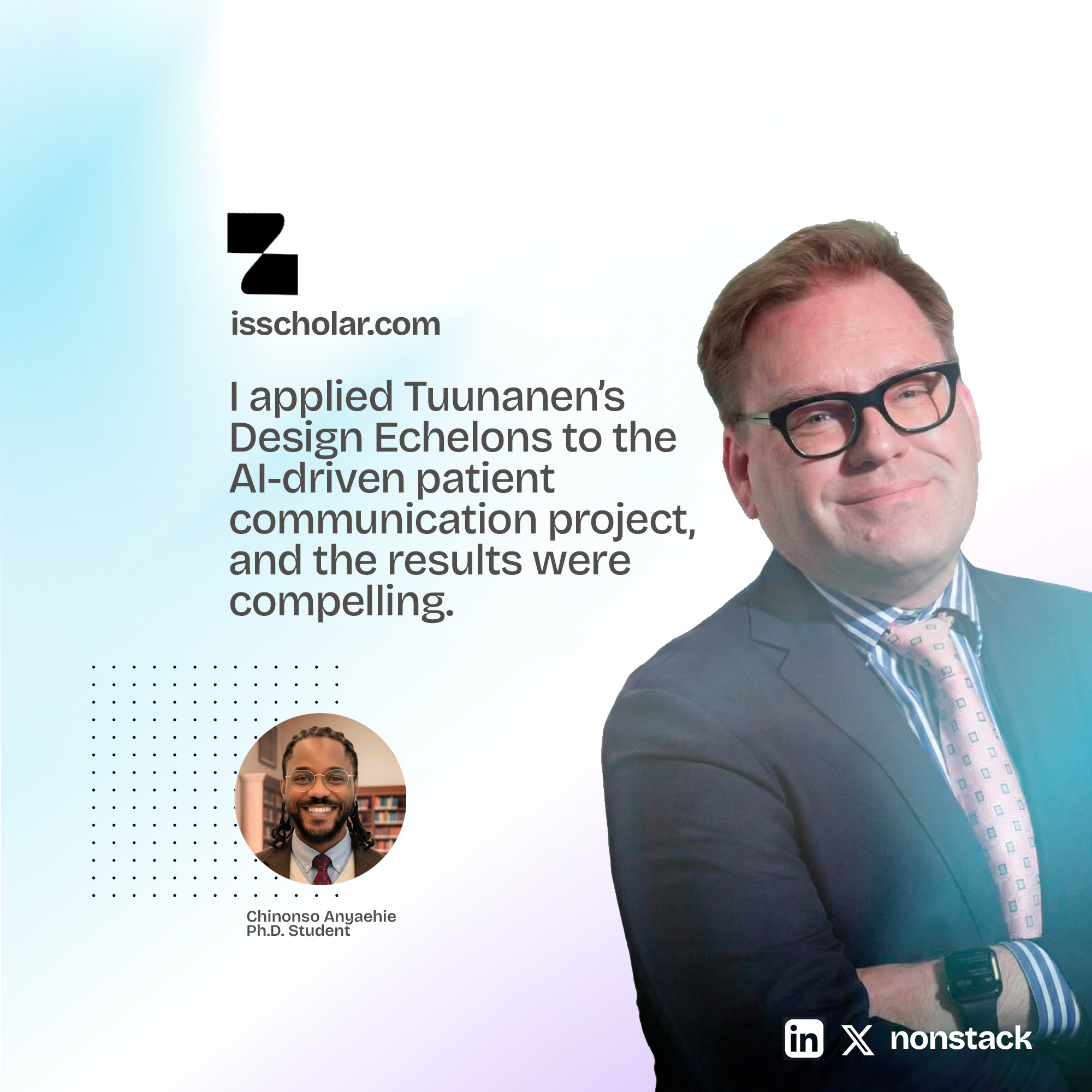



Leave a Reply